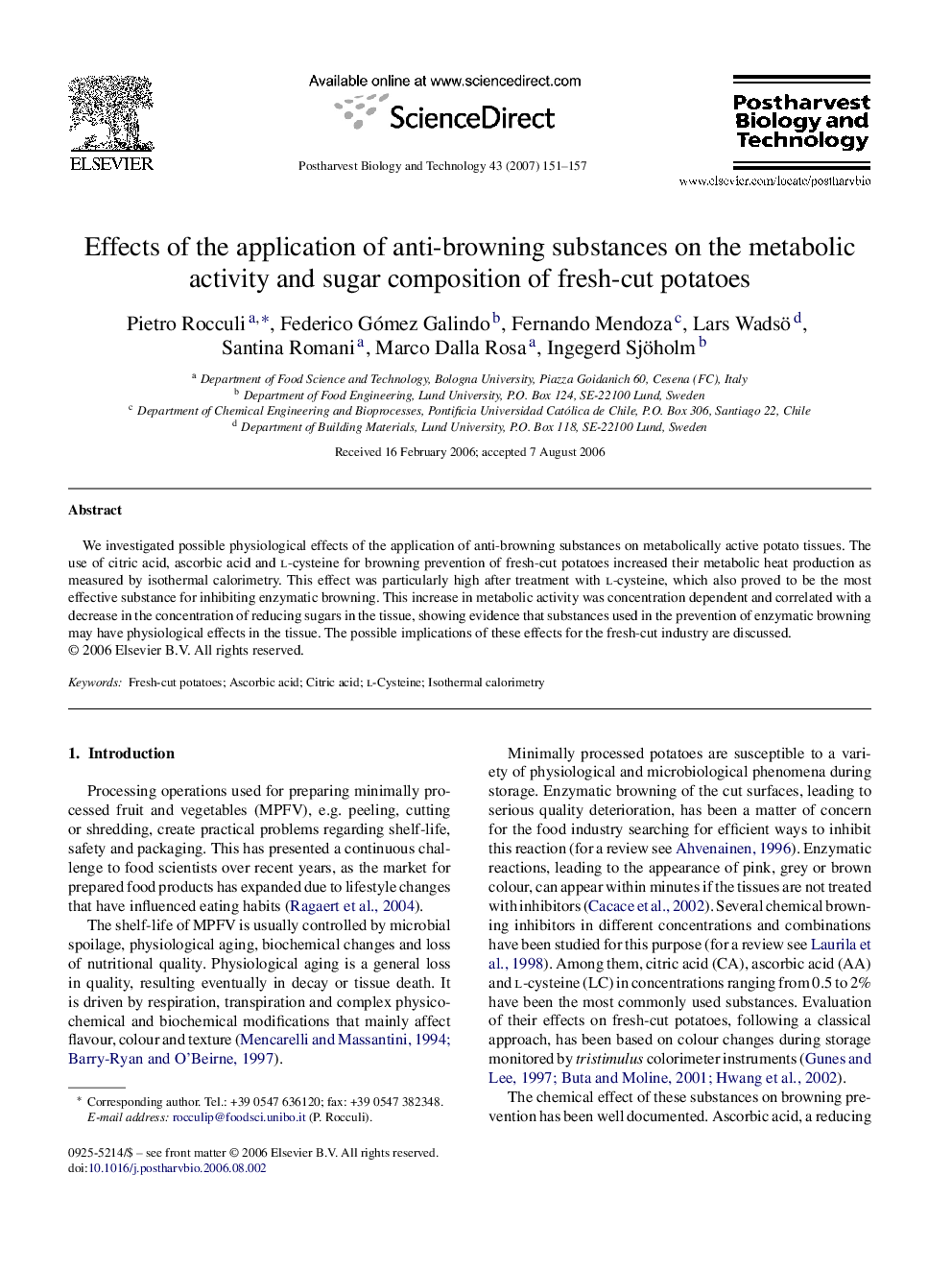| Article ID | Journal | Published Year | Pages | File Type |
|---|---|---|---|---|
| 4519898 | Postharvest Biology and Technology | 2007 | 7 Pages |
We investigated possible physiological effects of the application of anti-browning substances on metabolically active potato tissues. The use of citric acid, ascorbic acid and l-cysteine for browning prevention of fresh-cut potatoes increased their metabolic heat production as measured by isothermal calorimetry. This effect was particularly high after treatment with l-cysteine, which also proved to be the most effective substance for inhibiting enzymatic browning. This increase in metabolic activity was concentration dependent and correlated with a decrease in the concentration of reducing sugars in the tissue, showing evidence that substances used in the prevention of enzymatic browning may have physiological effects in the tissue. The possible implications of these effects for the fresh-cut industry are discussed.
